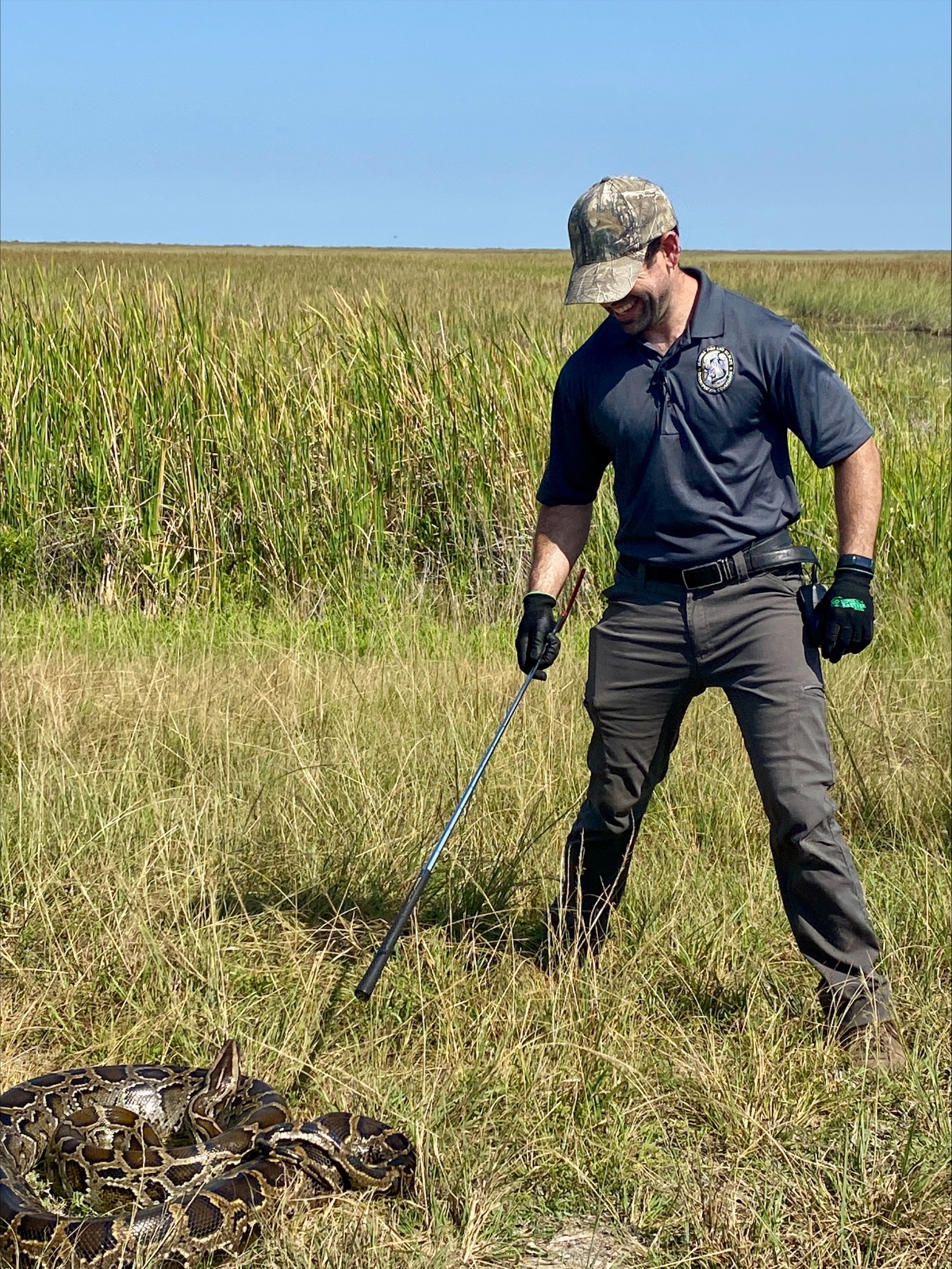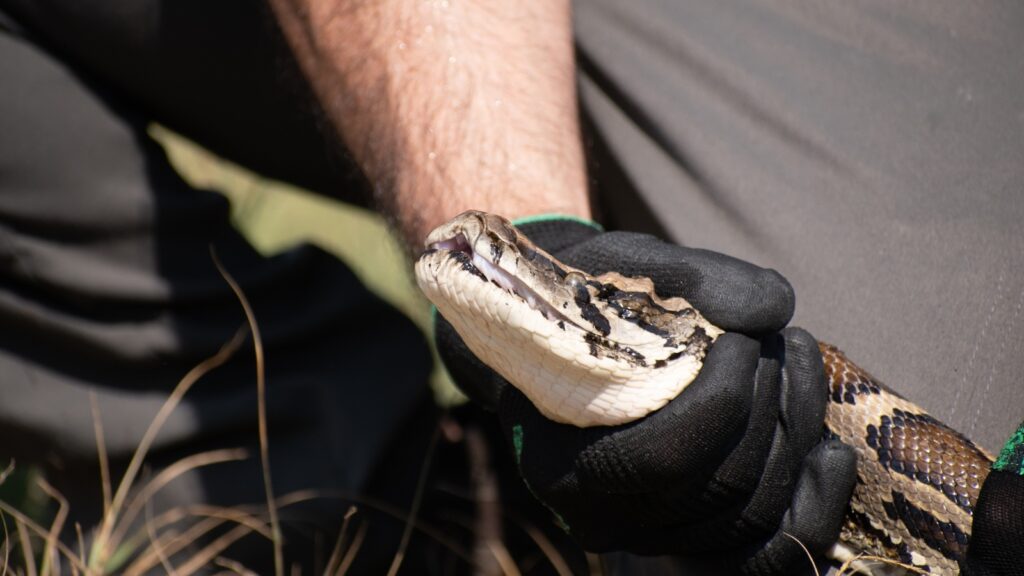Florida Fish and Wildlife Conservation Commission
The 2024 Florida Python Challenge is currently taking place where snake hunters compete to remove as many invasive Burmese pythons from the wild as possible, all competing for a share of the $25,000 in cash prizes that will be handed out.
Populations of invasive Burmese pythons have exploded in South Florida over the past few decades. A single large female can lay 60+ eggs at a time, as may learned when this 16-footer was caught last Summer by Mike Kimmel aka the ‘Python Cowboy’ and his dog Otto when they removed 60 eggs from the snake’s belly.
If there’s one thing that conservationists and ecologists agree on it is these invasive snakes pose a very serious threat to the natural flora and fauna in Florida, particularly the Florida Everglades, with endangered species in the Florida Keys already at risk of predation from these pythons. And in recent years, one potential solution that has emerged as a way to curb the population growth of this invasive species is to… eat them.
Python meat is remarkable similar to chicken cutlets both in texture and taste. It is a perfect example of ‘it tastes like chicken’ when talking about the meat from exotic species.
An ABC News segment back in March into whether python is good/safe to eat found they are an incredibly sustainable source of food, saying “these animals are extremely good converters of food and particularly protein. Literally, they are specialists and making the most of very little.”
Florida Officials Warn Against Eating Invasive Burmese Pythons
Well, the move to rebrand invasive pythons as a potential source of food has taken a big step back on the front lines after state officials cautioned against eating Burmese pythons. They claim these snakes have “astonishingly high” levels of mercury in their system due to pollution in the air.
Kimberly Miller of the Palm Beach Post published an in-depth article on this. She cites the burning of coal, oil, and wood as contributors to mercury being released into the air which then gets trapped in clouds and comes back to earth.
Once in the Florida Everglades National Park, she writes that mercury “can mix with sulfur coming from agriculture upstream. The sulfur oxidizes to sulfate, which energizes microbes that turn mercury into methylmercury, which is what accumulates in the food chain.”
Consuming meat with elevated mercury levels can impair brain function. This is known. But here’s the kicker, most of the Burmese pythons tested in Florida don’t exhibit dangerously elevated levels of mercury and many believe this new recommendation by the state was made out of an abundance of caution.

Florida Fish and Wildlife Conservation Commission
The Florida Wildlife Conservation Commission (FWC) has issued a “Do Not Consume Python” advisory. This is the same FWC that runs the Florida Python Challenge. Their full guidance reads:
Some Burmese pythons removed from the Everglades that have been tested for mercury levels have contained amounts of mercury considered too high for human consumption. Though it is not illegal to eat python meat, the Florida Department of Health recently finalized a consumption advisory for Burmese pythons found in Florida, advising “Do Not Consume Python” due to the high levels of mercury found in python meat. For more information regarding this advisory, please contact the Florida Department of Health.
Darren Rumbold is a Florida Gulf Coast University professor of marine and Earth science. He spoke with the Palm Beach Post about a study he published and extensive research into this area. What he and his colleagues found were the mercury levels of Burmese pythons in Southwest Florida were significantly lower than those in the Florida Everglades while the ‘Do Not Eat’ advisory still applies to both.
Rumbold says “I think the health department was being overly cautious by saying let’s not let anybody eat it.” He also believes the state’s reluctance to issue regional-specific guidance is due to the state not wanting to monitor the various regions in which these snakes live, saying “They don’t want to have to monitor pythons over time, so they don’t want to issue anything that is region specific.”
The 2024 Florida Python Challenge
Meanwhile, the 2024 Florida Python Challenge is ongoing for the next few days. Snake hunters will get paid out on snakes caught, the biggest snakes caught, the most stakes caught, etc.
Last year’s winner of the 2023 Florida Python Challenge caught 14 invasive Burmese pythons himself. Paul Hobbs earned $10,000 for removing those 20 snakes. Python hunter Ronald Kiger took home the $7,500 runner-up prize by catching 14 invasive Burmese pythons.
Results will come out in a few days with information on how the 2024 Florida Python Challenge went. Presumably, the hunters in South Florida have been catching them by the hundreds, hopefully the thousands. And we’ll known in a few short days. As a born-and-raised Floridian I tell myself every year I want to participate in this and then simply forget about it when it comes time to register… I’m setting an alarm for next year.f

